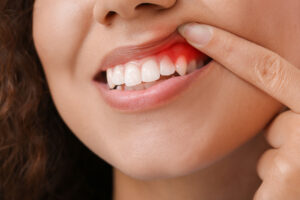Oral health can significantly impact overall well-being, yet it frequently receives less attention than it deserves. Adequate dental care routines extend beyond the cosmetic benefits of a bright smile; they are crucial in preventing various health problems. Proper oral hygiene practices are instrumental in avoiding tooth decay, gum disease, and even more severe systemic health issues, highlighting their importance in holistic health management.
This article delves into the importance of dental care habits, highlighting how effective practices contribute to oral and general health.
The Foundation of Good Oral Health: Daily Practices
The cornerstone of maintaining good oral health lies in consistent daily practices. Engaging in fundamental activities such as brushing teeth at least twice daily, flossing daily, and using mouthwash forms the basis of oral hygiene. These routine actions are pivotal in eliminating plaque, a sticky bacterial film that accumulates on teeth, potentially leading to tooth decay and gum disease if not addressed.
Regular brushing and flossing are also vital in preventing tartar formation, a calcified version of plaque that firmly adheres to teeth and can only be professionally removed by a dentist. This daily regimen is essential for sustaining long-term oral health and preventing future dental complications.
Professional Dental Care: Beyond the Basics
While daily oral care is essential, professional dental care is equally important. Regular dental check-ups, typically recommended every six months, allow for the early detection and treatment of oral health issues. During these visits, dental professionals thoroughly clean and examine the teeth and gums. For those seeking safe and effective treatment, options are available, such as Juvederm are available. These treatments complement daily habits and address specific dental needs.
The Impact of Diet on Dental Health
The diet significantly influences oral health. Foods high in sugars and acids are primary culprits in causing tooth decay, as they promote an environment conducive to harmful bacteria. On the other hand, a balanced diet abundant in fruits, vegetables, and dairy products is instrumental in reinforcing the strength of teeth and gums. These nutrients aid in remineralizing teeth and maintaining healthy gum tissue.
Equally important is the frequency of eating; habitual snacking, particularly on sugary treats, substantially elevates the risk of developing cavities. Thus, the quality and quantity of food intake are vital considerations in maintaining dental health.
Oral Hygiene and Overall Health: The Connection
There is a significant correlation between oral hygiene and overall health. Neglect in oral care can precipitate systemic health issues, including cardiovascular diseases, diabetes, and respiratory infections. The bacteria originating from periodontal diseases can infiltrate the bloodstream, potentially impacting other bodily systems.
Consequently, maintaining good oral hygiene transcends beyond preserving dental health; it is integral to safeguarding the body’s overall well-being. Effective oral care routines can thus play a preventative role in a broader health context, emphasizing the need for consistent dental hygiene practices.
The Psychological Aspect of Dental Health
Oral health exerts a profound impact on an individual’s psychological well-being. Dental problems can profoundly affect a person’s self-esteem and influence their social interactions, often leading to feelings of embarrassment or self-consciousness.
A healthy and appealing smile can significantly elevate confidence levels, enhancing social, personal, and professional relationships. It can improve an individual’s perception of their appearance and interpersonal skills, leading to greater success and satisfaction in various aspects of life.
Therefore, maintaining good dental health is a physical necessity and a key factor in nurturing mental and emotional well-being.
Children’s Dental Health: Building Lifelong Habits
Fostering good dental habits early in life is pivotal for ensuring long-term oral health in children. Educating them about proper brushing and flossing techniques and providing these practices become a regular part of their routine lays the foundation for a lifetime of healthy dental habits.
Regular dental check-ups from an early age are essential in monitoring and maintaining oral health, identifying potential issues early, and instilling a sense of importance in dental care in children. These early experiences shape their attitudes toward oral hygiene, influencing their future oral health behaviors and outcomes.
Challenges and Solutions in Dental Care
Access to dental care and oral hygiene education can be significant challenges in some communities. Barriers such as economic factors, lack of awareness, and limited availability of services can impede individuals from receiving adequate dental care. Public health initiatives and educational programs are crucial in addressing these challenges. They provide essential resources and knowledge, making dental care more accessible and understandable.
These initiatives often involve community outreach, affordable treatment options, and educational campaigns, playing a vital role in ensuring equitable oral health care and promoting widespread awareness of the importance of dental hygiene.
Conclusion
Understanding the importance of dental care habits is essential for maintaining oral and overall health. Incorporating daily oral hygiene practices, seeking professional dental care, maintaining a balanced diet, and understanding the broader health implications are critical components of adequate dental care. Committing to these practices ensures a healthy smile and a healthier life.








